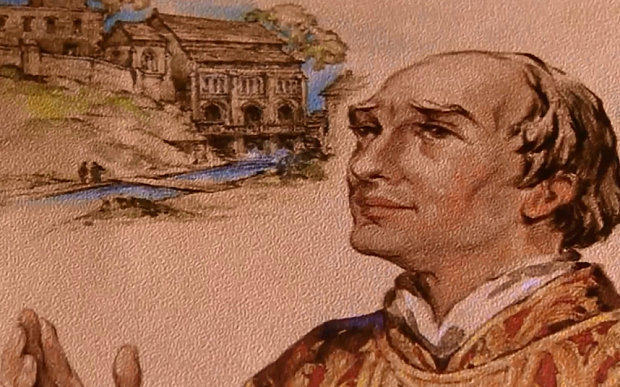The bones were actually discovered 140 years ago in the Welsh pub the Olde Star Inn, wrapped in children’s clothing in an old trunk. It wasn’t until recently that they came close to being identified as those of Saint John Plessington, a Catholic priest who was hanged, drawn and quartered in 1679. Pope Pius XI beatified him in 1929 and Pope Paul VI named him one of the Forty Martyrs in 1970.
Reported in The Independent,
An attempt to recover the remains of St John in 1962 failed when bones found in his supposed resting place in Burton, Wirrel, were revealed to be of a younger man.
DNA tests are needed to confirm that the until-now anonymous bones are indeed those of Plessington.
The Bishop of Shrewsbury, the Right Reverend Mark Davie, has launched an appeal for donations to carry out the tests, which will require at least a four-figure sum.
The story of Plessington’s life and ministry can be found on the Diocese of Shrewsbury site. He was ordained in Spain and worked for 10 years as a family chaplain and tutor until the “Popish Plot” of 1678-1681 included him among those accused of treason against King Charles II:
What is remarkable about his execution is that St John wrote his speech for the scaffold ahead of his death. It was later printed and copies still exist. According to Butler’s Lives of the Saints the speech represents “a particularly clear statement of denial in the face of death of the charges upon which he was condemned”, charges which, had they been true, would have made him a dangerous criminal rather than a martyr.
St John told the crowd that there was not a shred of evidence of treason against him and he was dying solely on account of his priesthood. With great fortitude, he added: “Bear witness, good hearers, that I profess that I undoubtedly and firmly believe all the articles of the Roman Catholic faith, and for the truth of any of them, by the assistance of God, I am willing to die; and I had rather die than doubt of any point of faith taught by our holy mother the Roman Catholic Church.”
The Diocese’s story on the possible identification of his bones includes a news piece by BBC North West, embedded below.

